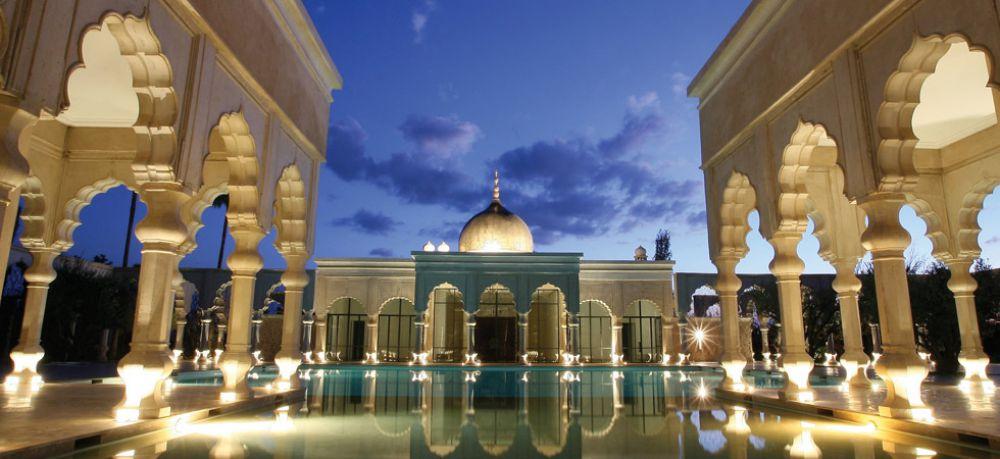Comments
- No comments found

Since 1999, King Mohamed VI has initiated major political and economic changes with a focus on renewable energy and sustainable development.

Morocco will soon become a major force to reckon with in Africa © BBN Times
Morocco's rich culture is a blend of African, Berber and European influences. Morocco relies mainly on services 52%, industrial sectors 33% and 15% tourism of total growth domestic product. By 2030, the country aims to generate 52% of its electricity from renewable energy mainly solar, wind and hydroelectric power. According to the World Bank, Morocco’s signature solar project Noor with a capacity of more than 500 megawatts is set to power 1.1 million homes by 2018 and might become the world’s largest concentrated solar power plant. The country works hard to preserve macroeconomic stability, which is a key objective of the current Moroccan government.
Morocco averaged 4.25% GDP growth rate and 1.8% inflation between 2008 and 2015 thanks to structural reforms and several actions that have been undertaken to put the country on the path of strong and sustainable growth. Additionally, Morocco has strong ties with France, a geopolitical partner with whom the country has developed and sustained a handful of industrial projects. As an example, PSA Peugeot Citroën recently entered into an agreement with five leading Moroccan Universities to create a new Open Lab dubbed “Sustainable Mobility for Africa” to explore sustainable mobility systems and develop cars of the future.
The African banking sector remains heavily concentrated in South Africa. Morocco, favoured by its growing economy and European proximity, is working hard to catch up and become a competitive African hub, ushering a new era towards reliable and sound investment opportunities in West Africa, competing with the likes of Johannesburg. Moroccan companies such as Attijariwafa Bank and BMCE bank with 4000 branches in Morocco and Africa aim to accelerate growth strategies in Africa to foster strong economic and cultural ties. Both banks scored 87% customer satisfaction in the personal and professional banking segment, hence the African takeover through partnerships and investment opportunities.
The Moroccan kingdom also has strong economic agreements with francophone countries in addition to payment facilities with the IMF, which showcase the financial stability of the country. The OCP group and Maroc Telecom for instance, are one of the leading companies that have made several acquisitions in West Africa, diversifying revenues in expanding markets by turning around companies from Senegal to Niger. Morocco acts as a facilitator, advisor and financier of economic agents in African countries in which the country has operations with regard to domestic and regional development projects.
Since its recent inception, Casablanca Finance City (CFC), ranked 2nd at the continental scene, aims to be a major financial hub for Africa, renown for a strong economic potential. CFC combines instrumental factors such as human capital, business environment, financial sector development and reputation to foster its continuing success. Casablanca Finance City’s “combatting terrorism and anti-money laundering” policy complies with Moroccan regulations as well as meeting best international practice. This policy aims to promote integrity and honesty as a means of achieving commercial success. The CFC status confers advantages such as streamlined visa; tax incentives and work permit application. Morocco’s cultural and historical ties with sub-Saharan Africa and Europe supplement these.
On the one hand, companies registered under ‘Casablanca Finance City’ status, other than regional or international headquarters, would benefit from a decreased tax rate of 8.75% beyond 5 years for all export sales and all net capital gains on moveable assets derived from foreign sources and earned in a given fiscal year. On the other hand, regional and international headquarters, which benefit from CFC status, are subject to a 10% tax rate beginning from the first year of the grant of the CFC status. In the five years since its launch, Casablanca Finance City has attracted more than 50 companies, including well-known names such as Boston Consulting Group, BNP Paribas and AIG. In addition, a number of asset managers have also gained CFC status, including Onyx Wealth Management and Invest AD, been primarily attracted by the stable platform, which may lead to the untapped potential Africa has to offer.
Despite a challenging context marked by slower growth loans and further reinforcement of the regulatory environment in all countries, Morocco reported encouraging financial results in 2015 from financial and renewable projects with a proactive eye on risk management policies. Morocco is eager to become a major economic actor in the African continent by promoting trade and genuine investment opportunities thanks to it political stability and forward-looking approach.
Leave your comments
Post comment as a guest